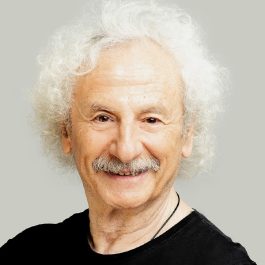This show could be considered the third part of a trilogy consisting of Aeschylus, Birth and Death of Tragedy and The Gods and God. The three shows revolve around the oral tradition of mythological stories on which the great Greek tragedies are built. And at the same time, the three shows are humorous monologues, where the language and resources of comedy are confronted with the arguments of the best-known classic tragedies frequently performed at the Mérida Festival. This mixture of tragedy with humor is not strange to the origin and perennial essence of Greek theater. It is said of Silenus, the demigod who serves as the patron of tragedy, and subordinate of Dionysus, god of tragedy, that when Midas asked him “what was best for man,” Silenus replied: “what is best for man.” “It would be not having been born.” To Midas’ astonishment, Silenus added: “but don’t worry, since you were born, the best thing for you would be to die as soon as possible.” This cannot be understood except as a joke that suggests the “absurdity of existence”, which is the great leitmotif of all Greek tragedy. There were still 25 centuries left for Valle-Inclán to present that mixture again in his brilliant creation of the grotesque. The mixture of genres was always there, showing that the dividing lines are a conventional creation, a code, so that the public adjusts its attitude towards the show.
Icons or the exploration of destiny is a humorous monologue that reflects on destiny in Greek tragedy. The great iconic figures of Medea, Oedipus, Antigone and finally Hecuba parade through this show. The exploration of destiny comes hand in hand with a comparative exposition of this determining force (destiny) in the lives of tragic heroes and likewise in the stories of Hindu mythology, where the concept of karma includes in the dynamism of destiny, the concept of freedom.
All these ingredients are interspersed with autobiographical experiences of the author and actor himself, as humorous parodies, with didactic elements from the usual repertoire of the Mérida Classical Theater Festival.
Recommended age: from 16 years.
Duration: 100 minutes

